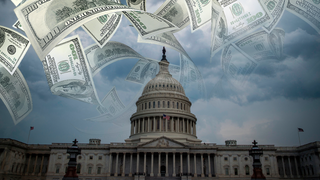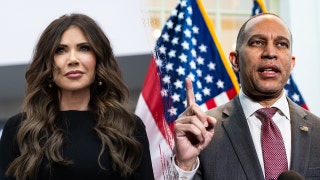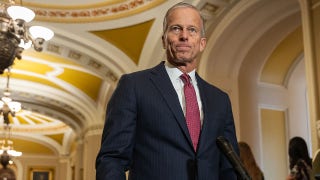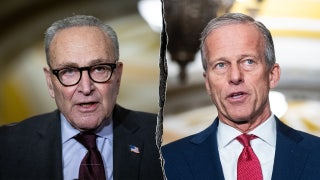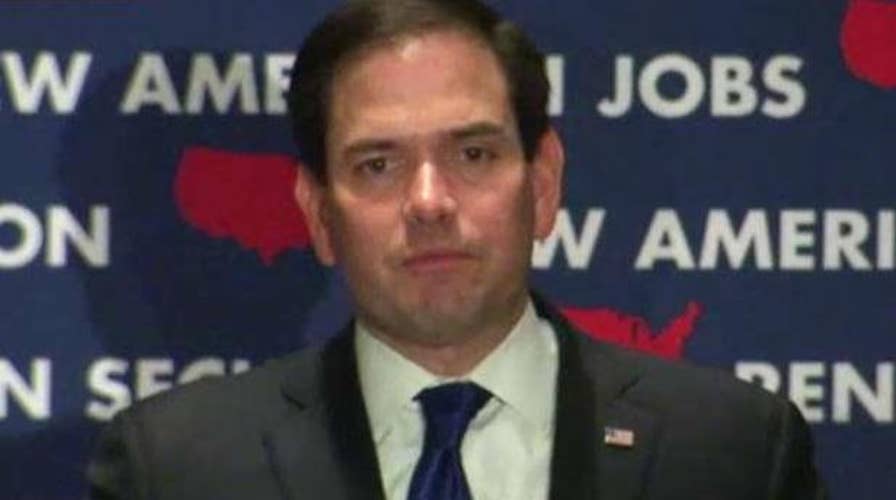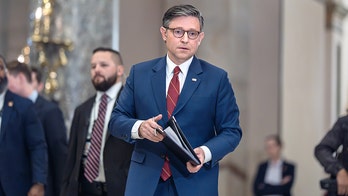Marco Rubio suspends his presidential campaign
Republican presidential candidate speaks to supporters after defeat in Florida's primary
Florida Sen. Marco Rubio suspended his campaign for the Republican nomination Tuesday night after a convincing loss to Donald Trump in Rubio's home state primary.
Rubio made the announcement to disappointed supporters at a rally in Miami, ending a campaign that began with great promise and had attracted support from several Republican lawmakers. But he badly trailed in the delegate count, having won just three contests so far.
“It is clear that while we are on the right side this year, we will not be on the winning side,” Rubio said in remarks that emphasized his personal faith.
Rubio declined to endorse another Republican candidate in his concession speech as he lamented what he described as the “politics of resentment", which he said would "not just leave us a fractured [Republican] party, they are going to leave us a fractured nation.
"They are going to leave us as a nation where people literally hate each other because they have different political opinions."
At one point, Rubio's speech was interrupted by a heckler. Rubio shrugged off the disruption, saying the man would "not get beat up" at his rally, a swipe at the recent disturbances at some of Trump's rallies.
"America’s in the middle of a real political storm, a real tsunami," Rubio said, "and we should have seen this coming.” He criticized the political establishment that he claimed "has looked down at conservatives as simple-minded people ... as simply bomb-throwers.
"The political establishment that for far too long has taken the votes of conservatives for granted and a political establishment that has grown to confuse cronyism for capitalism."
“While this may not have been the year for a hopeful and optimistic message about our future, I still remain hopeful and optimistic about America,” Rubio added.
Rubio, 44, gained attention in national political circles after he was elected to the Senate in 2010, defeating then-Florida Gov. Charlie Crist in the Republican primary thanks to a wave of Tea Party support. He was marked as a 2016 contender early in the campaign cycle, with Time magazine dubbing him the "Republican Savior" on its cover in 2013.
When he announced his campaign last March, Rubio's toughest challenge appeared to be his one-time political mentor, former Florida Gov. Jeb Bush. But the rise of Trump in the polls over the summer reduced the Floridians' personal rivalry to a sideshow. Bush dropped out of the race after last month's South Carolina primary.
Rubio's campaign appeared to be on track after a strong third place finish in the Iowa caucus. But issues with repetition during a debate in New Hampshire helped doom him to a fifth-place finish in the primary and his campaign never completely recovered.
Despite his intense rivalry with Trump, Rubio only indirectly criticized him during much of the campaign. He pivoted to an all-out assault on the businessman's character and ethics after a dismal March 1 Super Tuesday performance when he clinched only one of the 11 contests.
In recent weeks, the attacks deviated from policy to personal. At one point, Rubio equated Trump's small hands with his manhood. Trump began regularly referring to the senator as "little Marco." But the strategy backfired with voters and donors and Rubio later said he regretted the attacks.
In a debate last week, Rubio pledged to support the eventual Republican nominee, even if it was Trump. However, he has shown signs of reconsidering that pledge in recent days.
The Associated Press contributed to this report.







